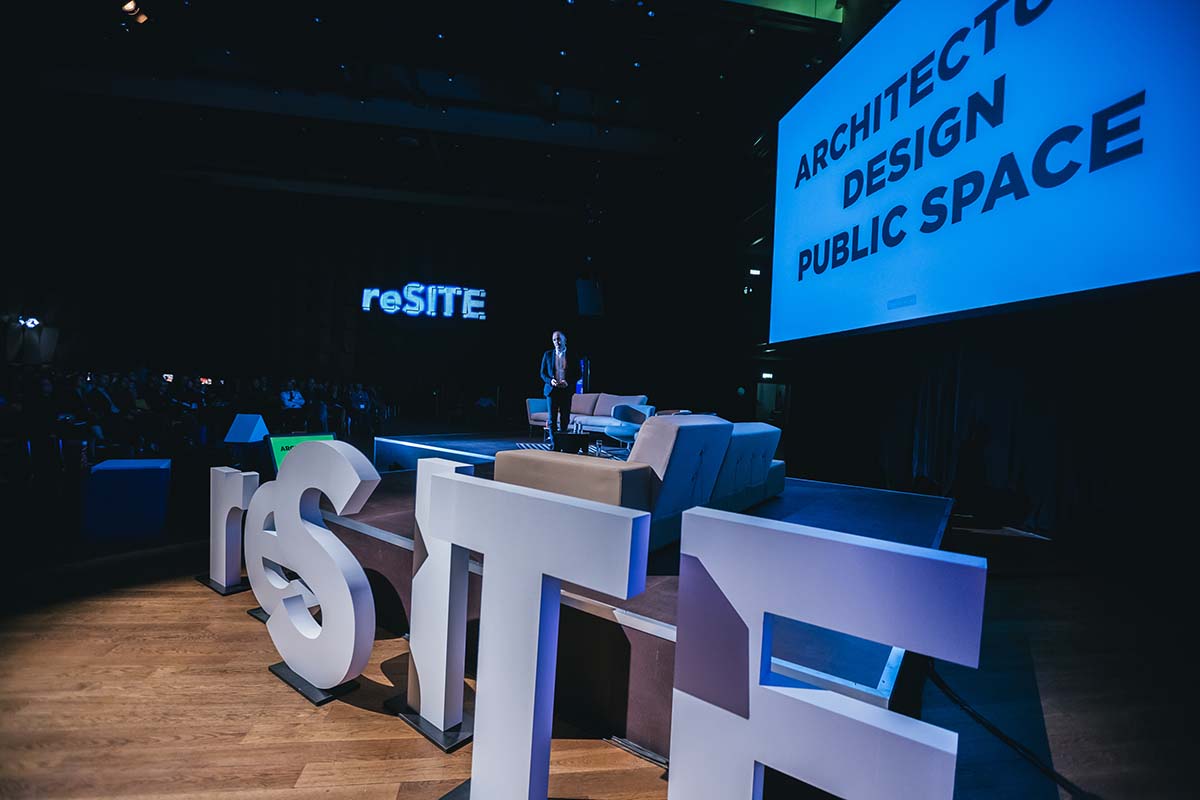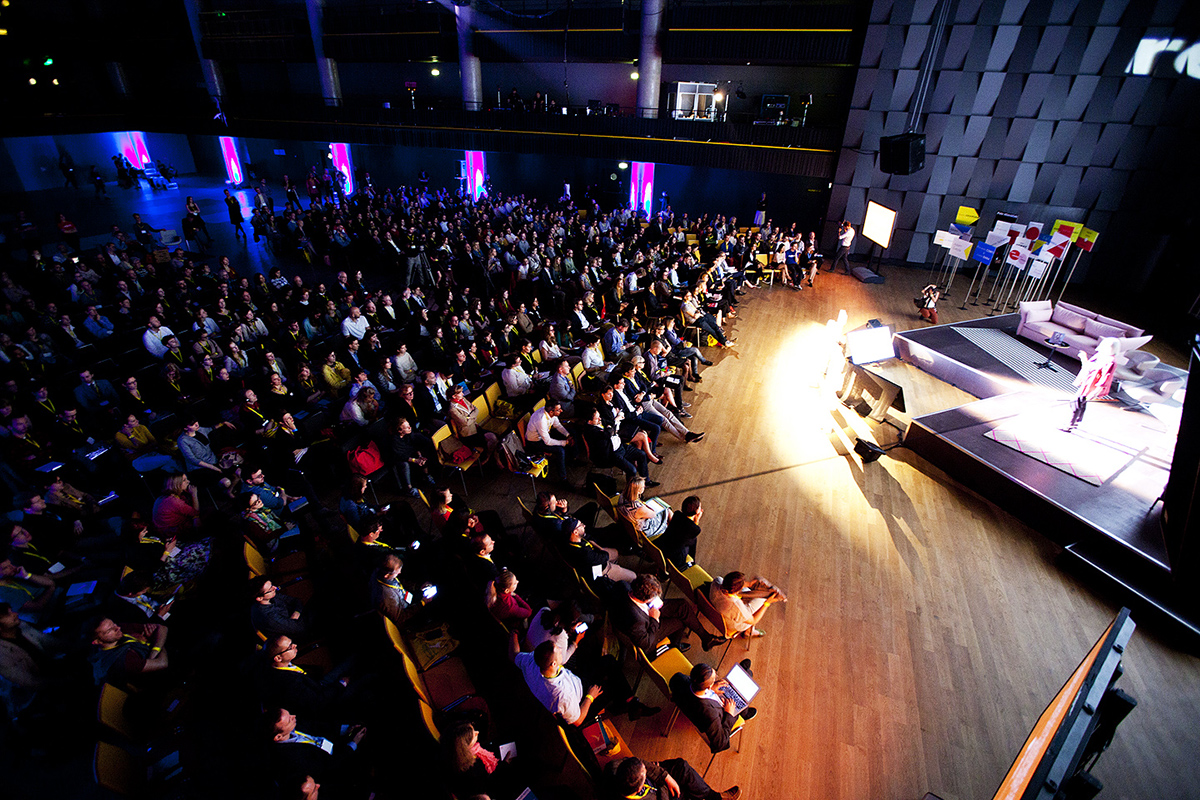Submitted by WA Contents
reSITE 2017: In/visible City will explore the anatomy of cities, registrations now open to the event
Czech Republic Architecture News - Dec 16, 2016 - 12:35 25367 views

Registrations are now open to attend to next year's most interactive event reSITE 2017 in Prague's Forum Karlin, Czech Republic from 22 to 23 June, 2017. reSITE 2017: In/visible City will explore the anatomy of cities. reSITE 2017 has opened registrations for the biggest architecture and urban development event in CEE.
The sixth edition of the annual architecture and urban development event reSITE 2017: In/visible City will focus on how the invisible shapes the visible in a city. On June 22-23, 2017 reSITE will host an international conference for architects, urbanists, landscape architects, municipalities, real estate developers and city lovers that will take place in Forum Karlin, Prague.
World Architecture Community is media partner for reSITE 2017: In/visible City, which next year again takes place in Forum Karlin, Prague. World Architecture Community has recorded some keynote sessions and published interviews last year, which can be read on our Urban Development page.

Its theme will focus on where design meets infrastructure and the presence of these vital systems in the architecture and landscape of cities. reSITE is conceived as 'most interactive architecture conference in the world,' a design experience itself that will present dozens of international speakers including globally renowned architects. reSITE will bring inspirational practical solutions from major cities and showcase high quality projects from around the globe.
A special 2-for-1 offer has been opened. The pricing policy is especially friendly with students and municipalities. At the same dates, reSITE will organize a festival in public space, offering a diverse selection of public events within Shared Cities: Creative Momentum, an associated EU project.

An invisible city under our feet
''The things that makes a city functional, that drive the economy and real estate investment, and consumes a consequent part of municipal budgets are often invisible. Like technical infrastructure such as data lines, water or waste management. If thought of as vital architecture and not simply technical infrastructure, the associated buildings can become icons in a city, and all kinds of infrastructures have a huge impact on our quality of life,'' Martin Barry, Founder of reSITE, explains the focus of the events.
Exploring the secrets of a city will involve the intersection of built infrastructure and social infrastructure, or citizen participation tools that influence decision-making processes. What infrastructure makes a world-class city? We will study the interface of infrastructure with private developments and citizens, award-winning designs and smart approaches. Getting back to reSITE’s beginnings, the organization is also preparing a public space intervention that will be a free surprise for Prague inhabitants.
"Infrastructure has thrust itself to the center of the political debate in America and with the election of Mr. Trump, the topic is more poignant than ever. Infrastructure expenditures in the US - decades behind counterparts in European and Asian cities - should bring the U.S. into the 21st century by focusing on smart technical infrastructure, high speed rail, multi-modal transport centers, airports and alternative transport in cities,” says Martin Barry who has chosen Prague as his second home, moving from NYC.

NY Times architecture critic Michael Kimmelman was on the stage for reSITE 2016. Image © WAC
''We can build to invest in smart, environmentally friendly, equitable infrastructure, promoting trains, mass transit, streets and civil society or we can turn infrastructure into just another cash machine for wealthy investors and accelerate sprawl and all the unhealthy development that has gotten us into the crises we are in now. Deciding which will decide our future and fate." Michael Kimmelman, Architecture Critic, The New York Times.

Saskia Sassen was on the stage for reSITE 2016. Image © Tomas Princ
The conference that attracts around 40 speakers and over one thousand visitors stands out by its overlaps across sectors and mix of people, young and old. Its objectives are to advocate for a private sector that is thoughtful about the public space, a public sector that can set sustainable and clear conditions for development, leadership and a stable legislative framework, and design that works across sectors from culture to economics.
reSITE shows good practices and successful solutions for the built environment that are usually built on a bottom-up participation process with economic data analysis and civic leadership.
''reSITE is a design experience that pushes the limits of how we think about city making and helps to find new opportunities, partners, collaborators and ways to improve our cities. The conference will feature keynote lectures, discussions and shorter interactive formats with a rich use of multimedia,'' Osamu Okamura, Program Director of reSITE, explains the program strategy.
''In 2017 we will organize more workshops and roundtables and answer how to make the infrastructures architecturally appealing and economically viable, how to plan for cities with a growing population and what will be the smart, efficient and transparent management of these in the nearest future.'' reSITE will help identify the latest trends and innovations, and the impact of a successful infrastructure on the quality of life.
The registrations have been opened with a special 2-for-1 offer valid until January 6. reSITE offers the tickets in 3 categories: for professionals, municipalities & NGOs and students. VIP packages are also on sale.
all images courtesy of reSITE
> via reSITE
